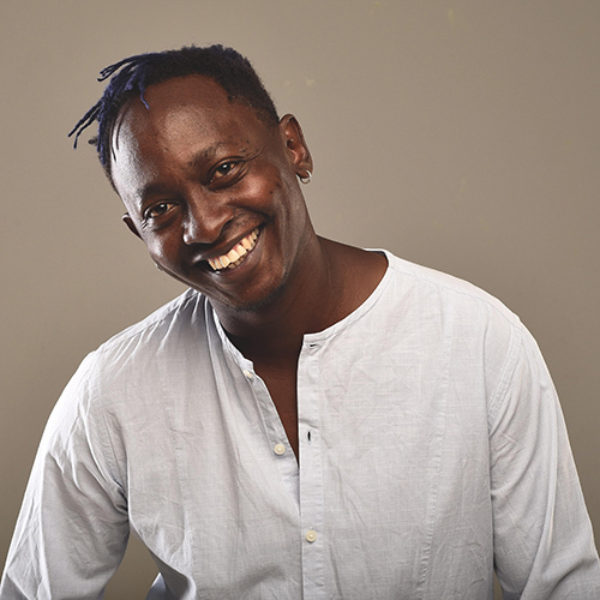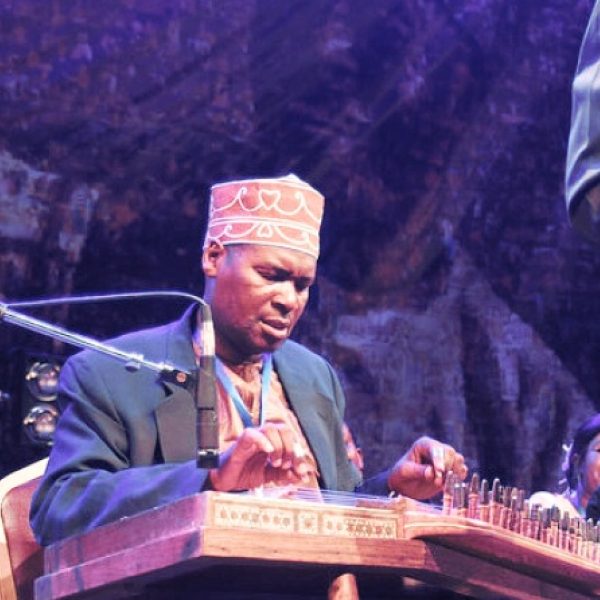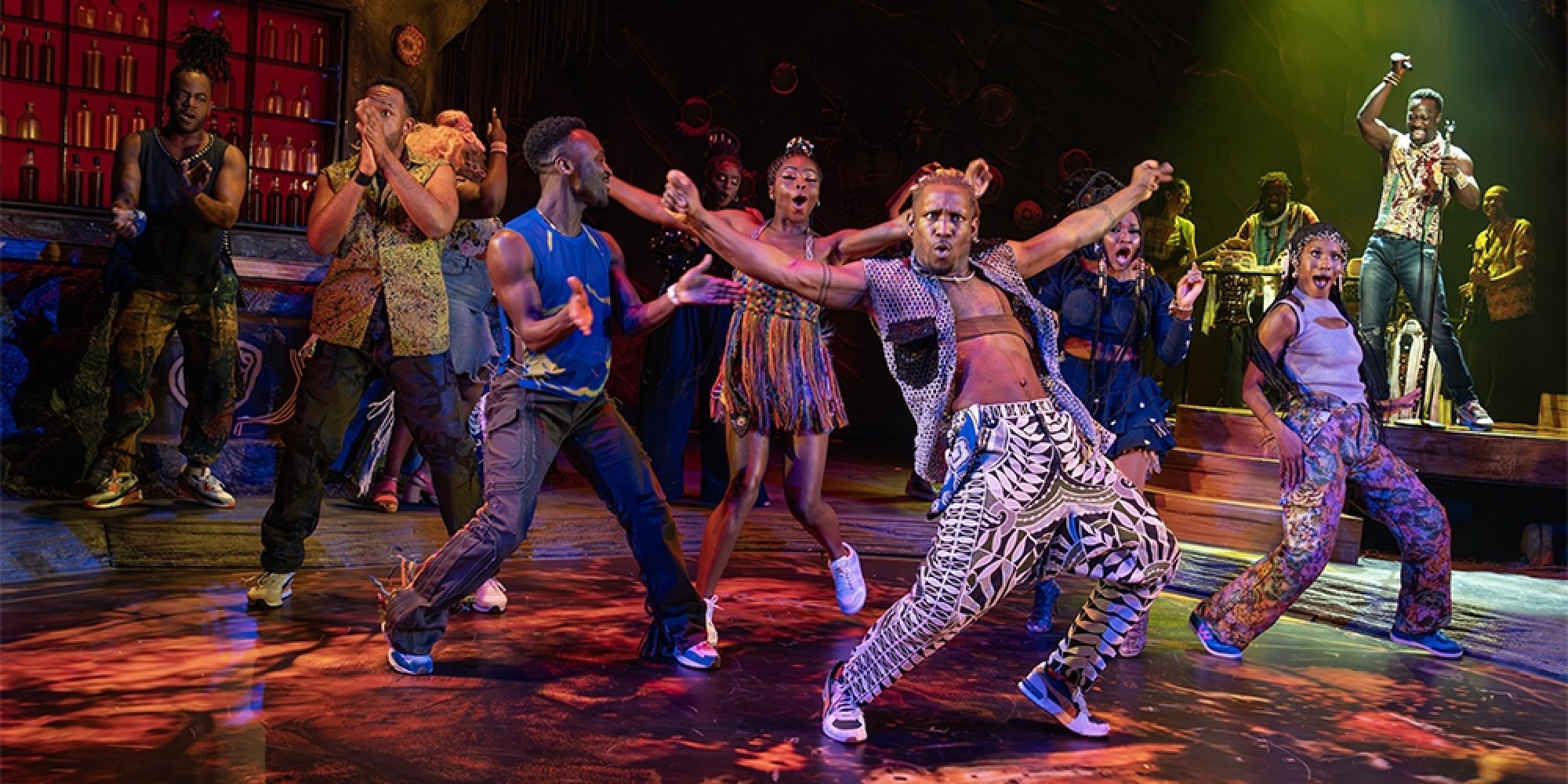Goddess, a new musical playing at The Public Theater, is many things: a mystical drama reaching back to the mists of time, a dual love story with both comic and tragic fates, a murder mystery, a bold take on the confrontation between tradition and modernity in a post-colonial African society, and also, a riot of movement, rhythm, vibrant colors, jazzy music and virtuoso vocal performances to rival any opera out there.
The setting is Mombasa, Kenya, where the book-writer Saheem Ali grew up. The action centers around Omari, the son of the city’s conservative governor and a candidate to replace him, and Nadira, a golden-voiced singer who is an earthly embodiment of Marimba, the goddess of music. Nadira is confined to a Mombasa nightclub, the Moto Moto, where most of the action takes place. Omari, fresh from studies in America, is torn between his love of freedom and music (he’s a fine saxophonist), and his conservative parents and fiancée, who consider Moto Moto the nearest thing to Hell on earth.
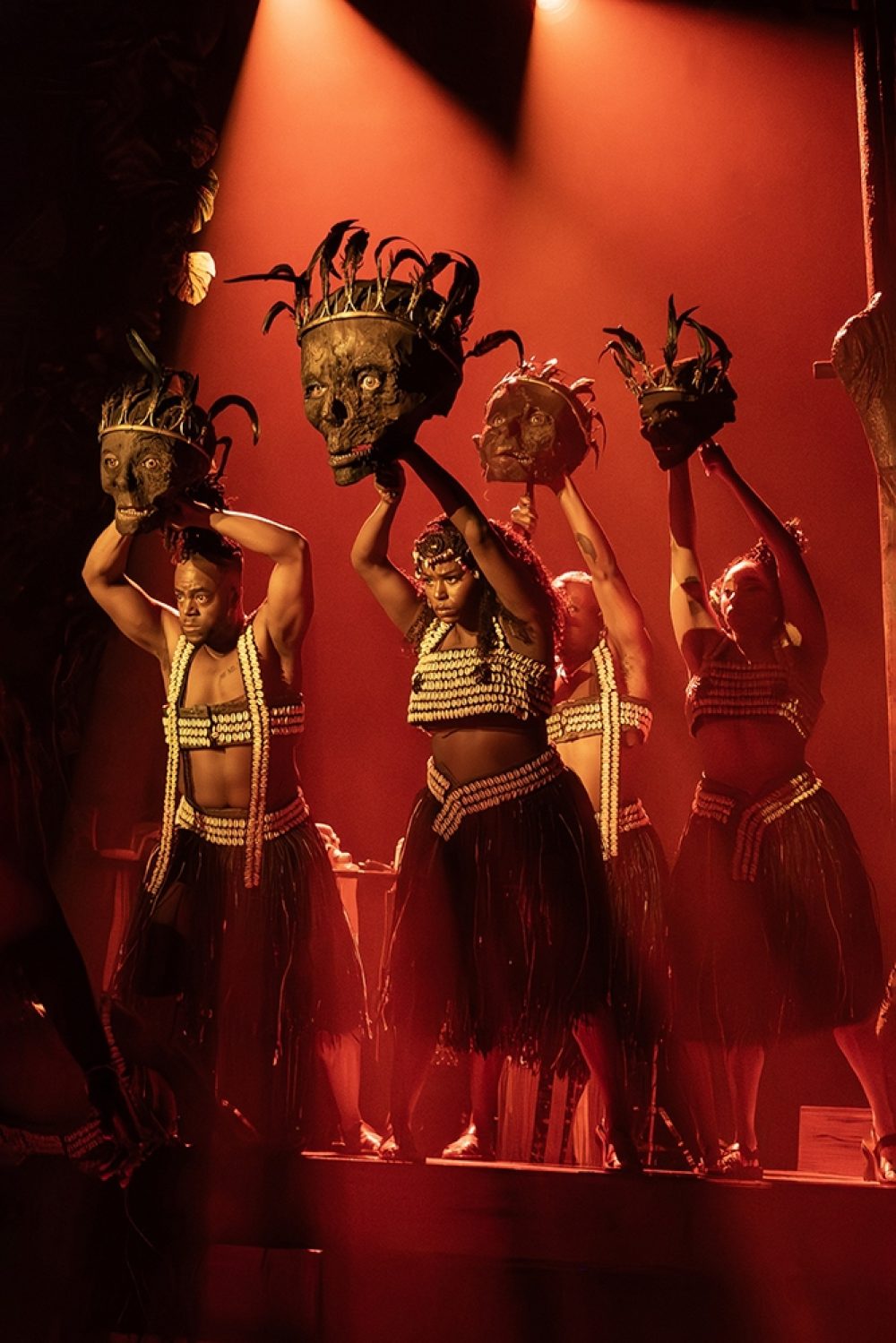
These themes intertwine as we move between the Moto Moto, Omari’s family home and the lair of an oracle who receives wisdom from “the gods.” The Moto Moto scenes are electrifying, giving the Shrine scenes in the Broadway musical Fela! a run for their money. The vocal performances are consistently exceptional, notably Austin Scott (who toured in the lead role in Hamilton) as Omari, and Amber Iman as Nadira. Iman and others have a few diva moments that had the audience I saw on their feet in acclamation.
For all its dimensions and complexity, the story is easy to follow because the balance between music and narrative is skillfully maintained so that one barely misses a word. The music connotes Africa in frequent use of call-and-response vocals and powerful rhythms, enhanced particularly by Senegalese percussionist Aba Diop, part of the on-stage band that accompanies many of the numbers. But the more prominent musical sources are jazz, blues and Broadway recitative. The melodies are intricate and demanding on the performers. This is not the sort of musical where you’ll walk out humming the tunes, but you might want to go back to hear it all again.
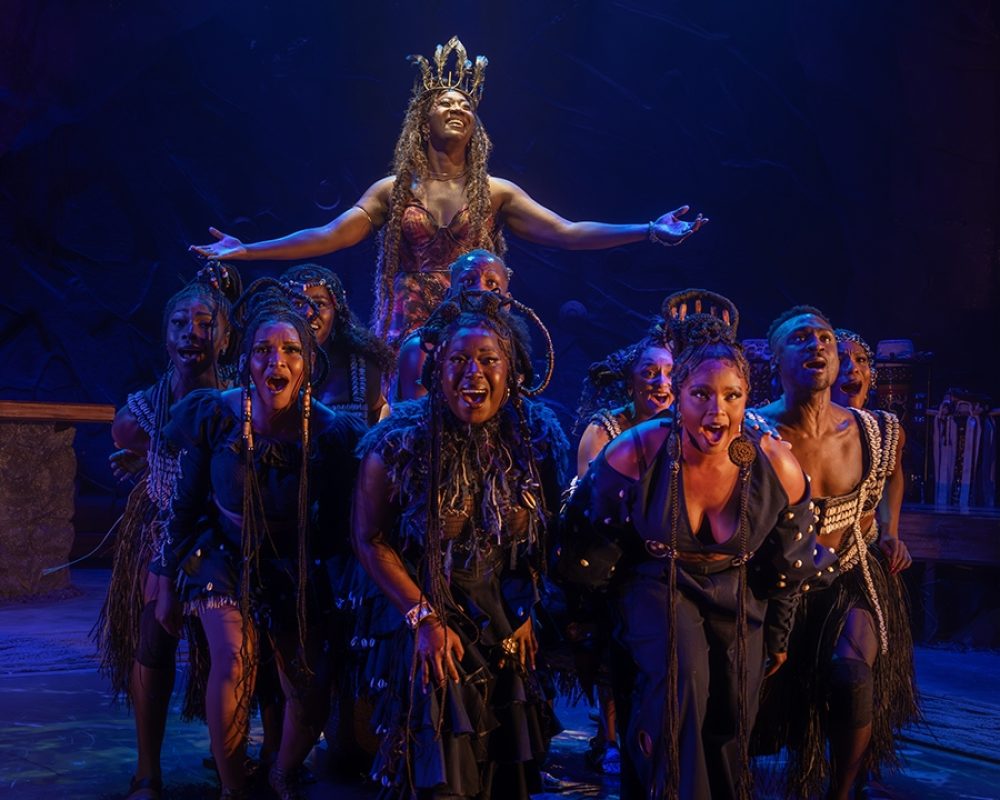
Near the end, Omari lauds Swahili culture as a model of multi-ethnic harmony and synthesis. As an Afropopper, I would have loved to hear some East African taarab and Swahili musical strains in the score, but the choice is understandable. All that might have gone right past most audiences.
No one ever accused this writer of being an expert on theater, but for what it’s worth, I suspect this Goddess is headed for Broadway.
Related Audio Programs
